MA in Clinical Psychology with Emphasis in Marriage & Family Therapy: Daytime Format
The Master of Arts in Clinical Psychology: Daytime Format program will prepare students to serve individuals, couples, families, and groups as a licensed marriage and family therapist (LMFT) or a licensed professional clinical counselor (LPCC) in California.
This cohort-based MA in Clinical Psychology program provides students with a clinical and practice-based course of study, exploring the social and psychological implications of socioeconomics and how poverty and social stress affect the ability of individuals, couples, and families to thrive.
Classes are held on the Malibu campus in sunny California, which is consistently ranked as one of the most beautiful places to study.
Program Benefits
Top Program in the US
Consistently listed as a top choice for graduate clinical psychology programs by the National Center for Education Statistics.
Malibu Campus
The Clinical Psychology (Daytime) program is offered at Pepperdine University's beautiful main campus.
Quick Facts
| Format: | Daytime |
| Term: | Fall |
| Location: | Malibu |
| Length: | 2 Years / 62 units |
| Tuition: | $1,945 per unit |
130+ Clinical Practicum Sites
With more than 130+ practicum sites for trainees from the MACLP program annually all across Southern California, CLP students experience hands-on clinical practice as a signature component of a comprehensive approach to preparing licensed marriage and family therapists (LMFT) or licensed professional clinical counselors (LPCC).
Expedient Completion
Students may complete the program requirements in 2 years.
Dedicated Clinical Training Staff
Staff members support students throughout the interview process at approved settings and provide guidance and consultation while engaged in fieldwork/practicum.
Supervised Clinical Experience
Students begin practicing in the second term of the program.
Housing
Students have access to graduate student housing and amenities at our scenic Malibu campus.
Most Chosen CLP Masters Program in the US
Clinical Practicum Sites
Cohort Size
GSEP Student:Faculty Ratio
for Best Weather by BestCollegeReviews.Org
Malibu Campus Ranked One of the Most Beautiful Places to Study
for Most Beautiful Campus by CaliforniaCollegePrep.Com
for Most Beautiful Campus by OnlineChristianColleges.Com
Take the Next Step
Reach out to us to learn more about Pepperdine's MA in Clinical Psychology with Emphasis in Marriage and Family Therapy: Daytime Format program.
Get in Touch
Fill out the Request Information form to learn more and get in contact with an enrollment officer.
Attend an Info Session
Experience an in-depth overview and meet program leaders.
Start Your Application
Submit the application form early to meet scholarship and enrollment deadlines. It takes fewer than 15 minutes.
Program Deadlines
Final Application Deadline - The Fall 2024 application period has closed.
Classes Begin - First day of the Fall term.

Antiracism and Antidiscrimination Statement
The MACLPD and GSEP Psychology Division stand in solidarity against racial inequities and injustice and other forms of discrimination and oppression. We are committed to fostering an inclusive learning environment that is enriched and strengthened by diversity including but not limited to race, ethnicity and national origin, gender and gender identity, sexuality, class, age, ability status, and religion. GSEP also encourages all community members to engage in critical learning and reflection to strengthen our capacity for being effective, active, and outspoken against all forms of racism and intersectional oppression.

Curriculum Overview
Employing the practitioner-scholar model of professional training, rigorous coursework is paired with in-depth clinical training, allowing students to develop key clinical skills and gain experience working directly with clients.
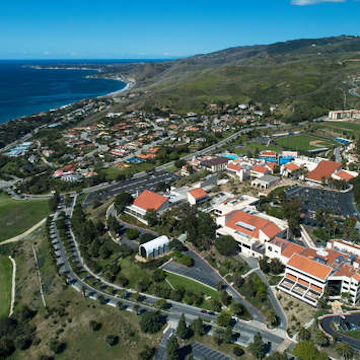
Location
Classes are held at the Malibu and Calabasas campuses in sunny California. The expansive Malibu campus sits on 830 acres and overlooks the Pacific Ocean with nearly every spot on campus featuring stunning views of the beaches. Pepperdine is consistently ranked as one of the most beautiful places to study. Students also have access to graduate student housing and amenities like the library, gym, and swimming pool at our scenic Malibu campus.
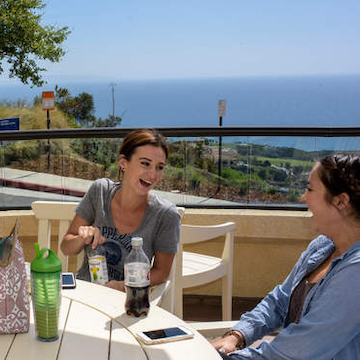
Student Experience
- Build community and lifelong relationships with peers and colleagues through a cohort model and optional residential experience. The Pepperdine community extends beyond the program to the larger GSEP and Pepperdine family.
- A dedicated enrollment services officer will make your admissions process easy and comfortable with experience in supporting both international and domestic students.
- We integrate domestic and international students across our campuses. Dedicated support for international students is provided through the Office of International Student Services (OISS).
- The Office of International Students Services (OISS) values our international students for what they bring to our campus—diversity, global perspective, cultural respect, determination, and a wonderful sense of adventure. We welcome students from all nationalities, faiths, and education systems, as they provide a diverse perspective in our classrooms.
- Access to housing and amenities at our scenic Malibu campus is provided.
- We offer opportunities to participate in university social, sporting, cultural, and spiritual events.
- Our cohort model is designed to build upon leadership skills, peer support, and lifelong relationships with colleagues.
- Our partnerships with professional networks and conferences and robust alumni network further students' growth opportunities.

Expand Your Career Possibilities
Therapists and counselors are needed in many clinical and professional settings, including hospitals, schools, government agencies, and private practice. After earning your degree, you may pursue professional licensure and employment in a variety of roles.
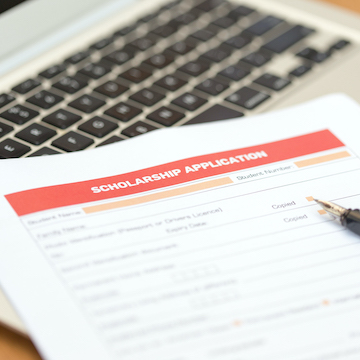
Financial Aid
The Financial Aid Office is available to answer questions and help you navigate funding your education at GSEP through numerous scholarship, grant, loan, and other opportunities.
To help determine your total cost of tuition and living expenses for this specific program, please refer to our GSEP tuition calculator.
Alumni and Faculty Spotlight
"Our faculty members bring richness and depth to both their research and their teaching. Many of our faculty have private practices or work in practice actively, making a huge difference for our students." — Dr. Thema Bryant, Professor and 2023 President, American Psychological Association.
What Our Alumni Are Saying
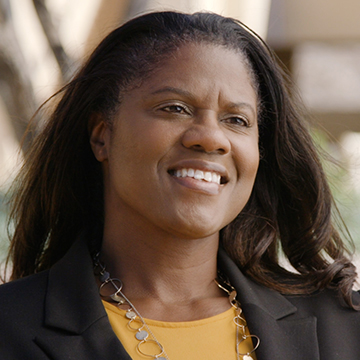
"I thought it was awesome to find a place that has as part of their mantra, 'we are preparing people for leadership.' What I did not count on is that I would have this total self-awareness/self-discovery process that would happen. That changed my life! It was very comforting to be taught by professionals who are actually out there. So you are learning the theories, but you are also getting all this priceless knowledge."
-Pamela Anderson '14
Why Pepperdine
Accreditations and Recognitions
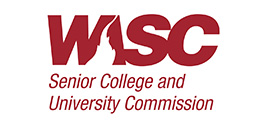
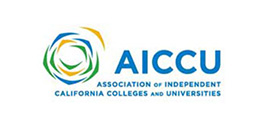


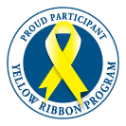
Contact Us
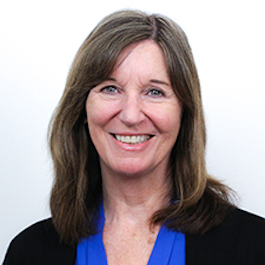
Kelley Hill
Enrollment Officer
Pepperdine GSEP
310.568.5664
Email
Schedule a Phone Appointment
Take The Next Step
Learn more about Pepperdine's MA in Clinical Psychology MFT Daytime program.
